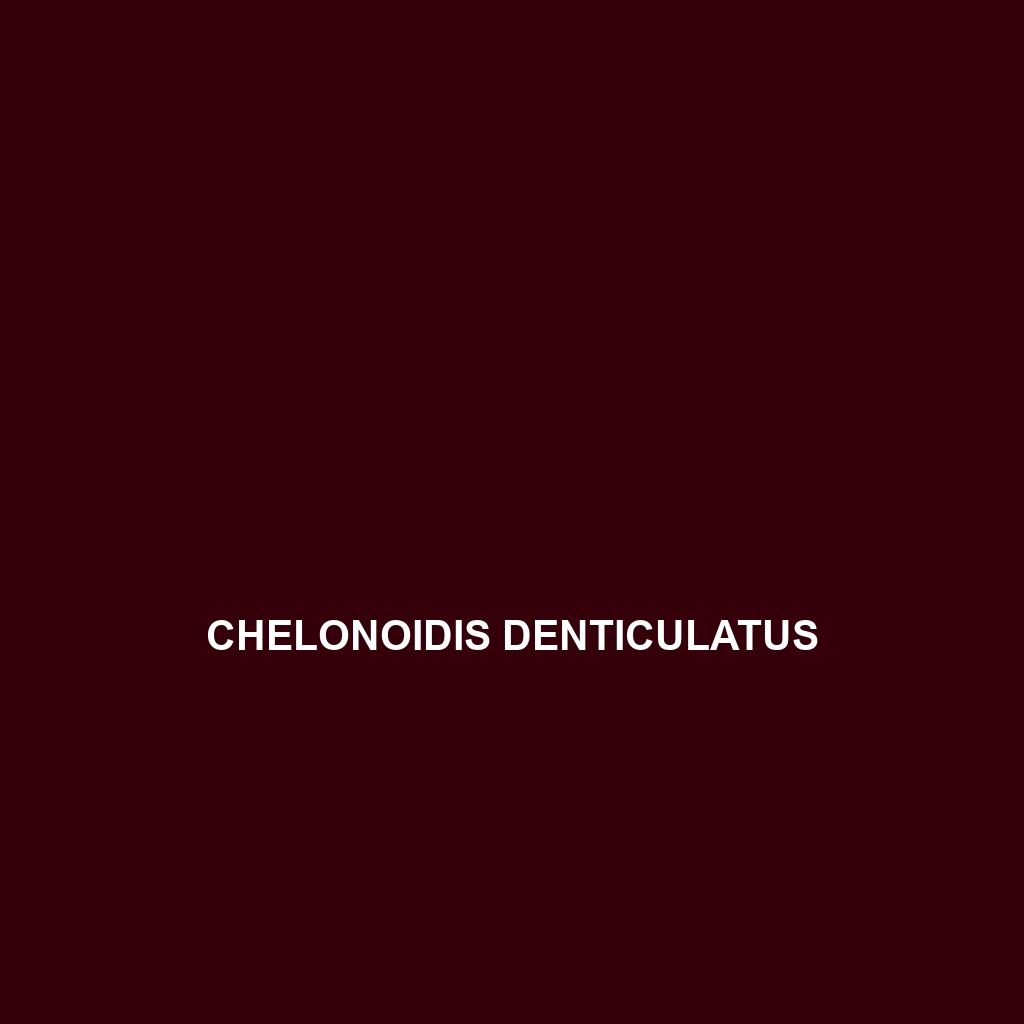Chelonoidis denticulatus: An In-Depth Species Description
Common Name: Chelonoidis denticulatus
Scientific Name: Chelonoidis denticulatus
Habitat
Chelonoidis denticulatus, commonly known as the Yellow-footed Tortoise, is primarily found in the tropical rainforests of South America, specifically in the countries of Brazil, Guyana, Suriname, and French Guiana. This species thrives in humid, forested areas, often near water sources such as rivers and swamps, which provide essential moisture for its survival.
Physical Characteristics
The Yellow-footed Tortoise typically reaches a size of 30 to 50 cm in shell length. Its carapace is flat and broad, displaying a distinctive coloration that includes dark brown or black with vibrant yellow or orange markings on the limbs and head. The species can be recognized by its slightly serrated edges on the shell, which contribute to its unique appearance.
Behavior
Chelonoidis denticulatus is known for its diurnal behavior, being active during the day, primarily foraging for food. They are generally solitary, but can occasionally be seen basking in the sun together. This tortoise is also known for its burrowing habits, which help it escape predators and harsh weather conditions. Its ability to adapt to different environmental conditions makes it a fascinating study for herpetologists.
Diet
This tortoise primarily follows a herbivorous diet, feeding on a variety of vegetation. Common food sources include leaves, fruits, and flowers, particularly favoring bromeliads and other rainforest plants. Its feeding habits play a crucial role in maintaining the health and balance of its forest habitat by aiding in seed dispersal.
Reproduction
Chelonoidis denticulatus typically breeds during the wet season, which varies by geographic location. Females lay up to 20 eggs in sandy nests, and the incubation period lasts about 90 to 120 days. Notably, the sex of the hatchlings can be temperature-dependent, with warmer incubation temperatures often yielding more females.
Conservation Status
Currently classified as Vulnerable by the International Union for Conservation of Nature (IUCN), Chelonoidis denticulatus faces threats from habitat destruction and illegal poaching. Conservation efforts are essential to protect remaining populations within their native habitats.
Interesting Facts
The Yellow-footed Tortoise is one of the few tortoise species that can tolerate a relatively high level of humidity. Additionally, it exhibits a remarkable ability to recognize its environment through smell and visual cues, enhancing its foraging efficiency.
Role in Ecosystem
Chelonoidis denticulatus plays a vital role in its ecosystem as both a herbivore and a seed disperser. By consuming fruits and vegetation, it helps regulate plant populations and promotes biodiversity within its rainforest habitat. Its interactions with other wildlife highlight the interconnectedness of forest ecosystems.
This structured HTML format delivers a comprehensive overview of Chelonoidis denticulatus, focusing on various aspects that enhance SEO and inform readers about this unique species.
